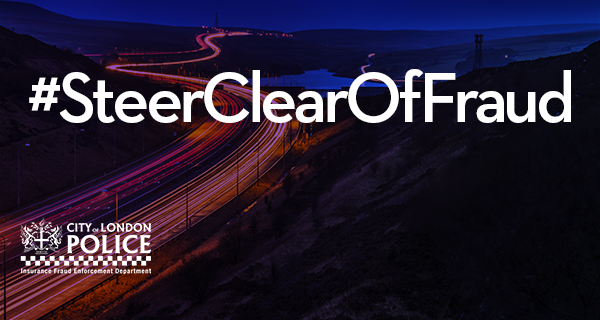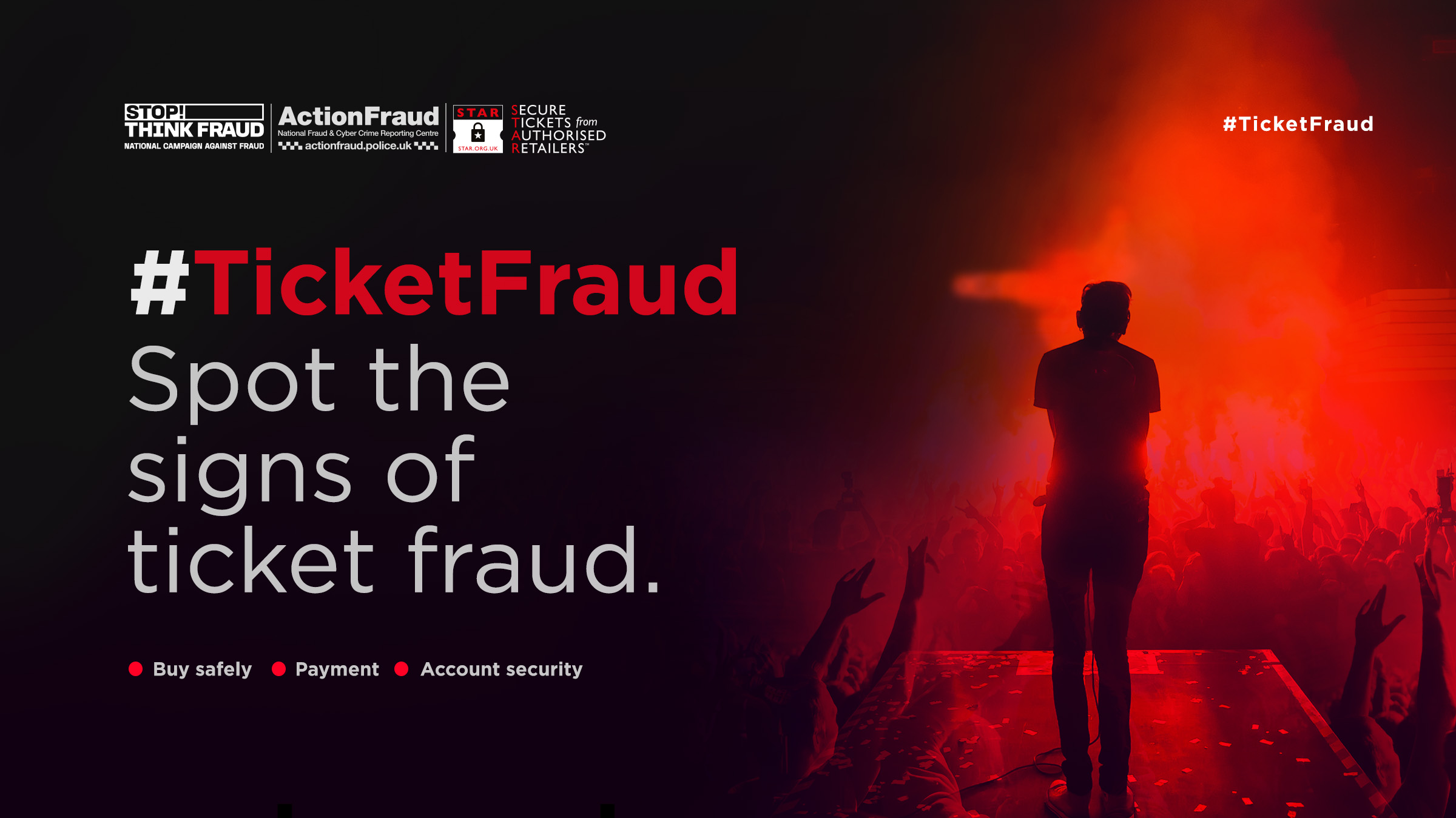City of London Police’s Insurance Fraud Enforcement Department launches campaign to raise awareness of fraudsters selling fake car insurance and warn motorists to ‘Steer Clear of Fraud’

- Over 850 reports of ghost broking have been reported to Action Fraud in last three years, with reported losses from individuals and organisations totalling £631,000
- Individual victims of ghost brokers lose on average £769
- Ghost brokers typically target men in their 20s, using social media
The City of London Police’s Insurance Fraud Enforcement Department (IFED) has launched a national awareness campaign today (Monday 5 February 2018) to warn motorists about the dangers of buying fake car insurance from fraudsters, also known as ‘ghost brokers’, who are potentially leaving thousands of unsuspecting victims driving without insurance.
Extent of the problem
From November 2014 to October 2017, Action Fraud received more than 850 reports linked to ghost broking, with reported losses for both individuals and organisations totalling £631,000. On average, each individual victim lost £769 from this type of fraud
Of these reports, 417 resulted in action being taken against the offenders by IFED following their investigations into ghost broking over the past three years, which included a man who set up 133 fake policies, a teenage ghost broker who was sentenced to jail and a man who made £59,000 from ghost broking.
However, it is thought that the true number of ghost broking victims may be much higher than this figure, as some motorists may be driving on the roads right now unaware that their policy is fraudulent. It is only when they are stopped by police or attempt to make a claim will they find out that they don’t have genuine cover.
This leads police to believe that ghost broking is actually being under reported each year due to the way ghost brokers deceive motorists into thinking they have legitimate insurance, when in fact it’s worthless.
What is ghost broking?
Ghost broking is the name given to a tactic used by fraudsters who sell fraudulent car insurance by a number of different methods. They typically carry out the fraud by one of three ways: they will either forge insurance documents, falsify the driver’s details to bring the price down or take out a genuine policy, before cancelling it soon after and claiming the refund plus the victim’s money.
It is a legal obligation to have valid car insurance and without it victims will experience the severe harm caused by ghost broking, including:
- Points on their driving licence
- Vehicle seizure and possible destruction of it
- A fixed penalty notice
- Costs to retrieve impounded vehicle
- Liable for claims costs if involved in an accident
This is on top of the money motorists will have lost buying the invalid car insurance and the money they will have to spend to then buy a legitimate insurance policy.
IFED analysis into the ghost broking reports reveals that men aged 20-29 are most likely to get targeted and that the most common method ghost brokers will use to make initial contact with people is through social media, particularly Facebook and Instagram. Other contact methods include adverts in newspapers and magazines, cold calls and being introduced, either directly or by friends, family members or work colleagues.
Stay safe when buying car insurance
In light of these worrying figures, IFED is encouraging drivers to be wary of heavily discounted prices on the internet or cheap prices they’re offered directly for car insurance, as they may well be ghost brokers.
IFED is issuing the following advice and tips to help drivers avoid falling victim to ghost brokers:
• Trust your instincts – if an offer looks too good to be true, then it probably is.
• Ghost brokers often advertise on student websites or money-saving forums, university notice boards and marketplace websites. They may also try to sell insurance policies in pubs, clubs or bars, newsagents and car repair shops.
• Be wary of ghost brokers using only mobile phone or email as a way of contact. Ghost brokers have even been reported using messaging apps, including WhatsApp, Snapchat and Facebook. Fraudsters don’t want to be traced after they’ve taken your money.
• If you are not sure about the broker, check on the Financial Conduct Authority or the British Insurance Brokers’ Association website for a full list of all authorised insurance brokers.
• You can also contact the insurance company directly to verify the broker’s details.
• You can check to see if your car is legitimately insured on the Motor Insurance Database website.
Detective Chief Inspector Andy Fyfe, Head of the City of London Police’s Insurance Fraud Enforcement Department, said:
“Ghost brokers trick unsuspecting victims with offers of heavily discounted car insurance, leaving them with a policy that isn’t worth the paper it’s written on and open to the severe harm that comes with driving without valid insurance. Being able to drive is vital for a lot people, whether it be to get to work or pick up their children from school or nursery, so if they fall victim to a ghost broker it could not only impact on them financially but also seriously affect their day to day life and make things very difficult.
“As well as the personal harm experienced by victims, ghost brokers also cause financial harm to the insurance industry, driving up the cost of insurance premiums for all motorists.
“While an offer of cheap car insurance may seem tempting, falling victim to ghost broking will end up costing you far more in the long run – both in terms of money and your licence.”



